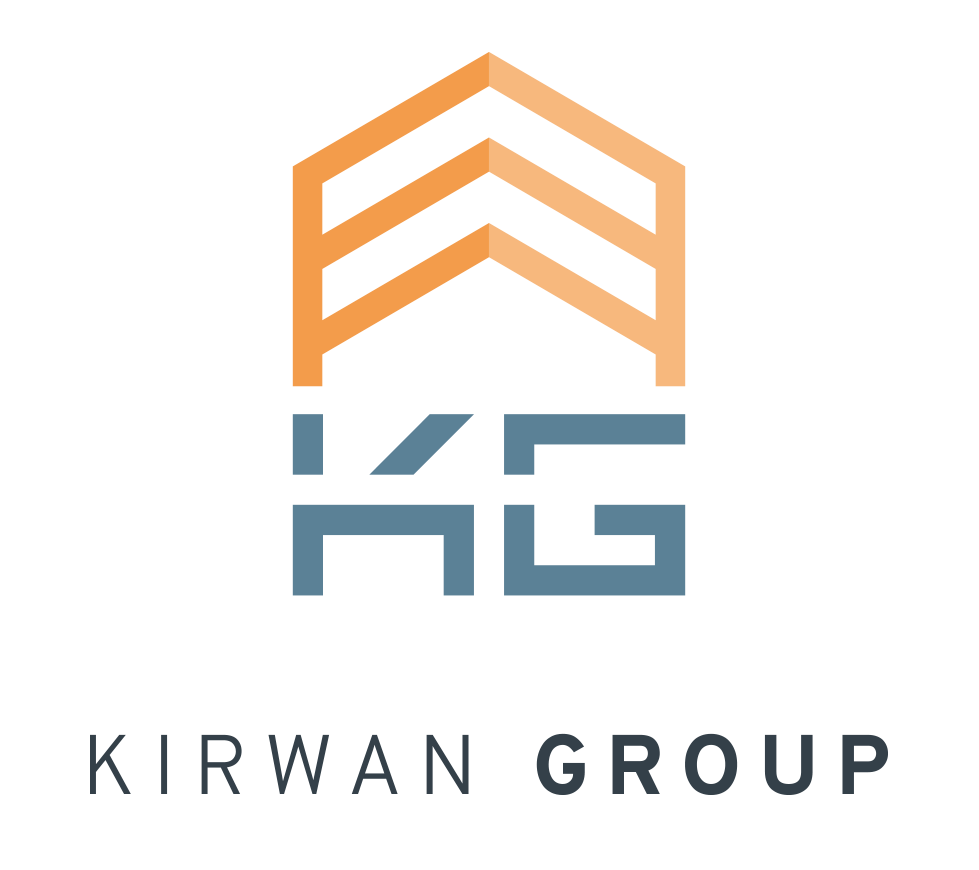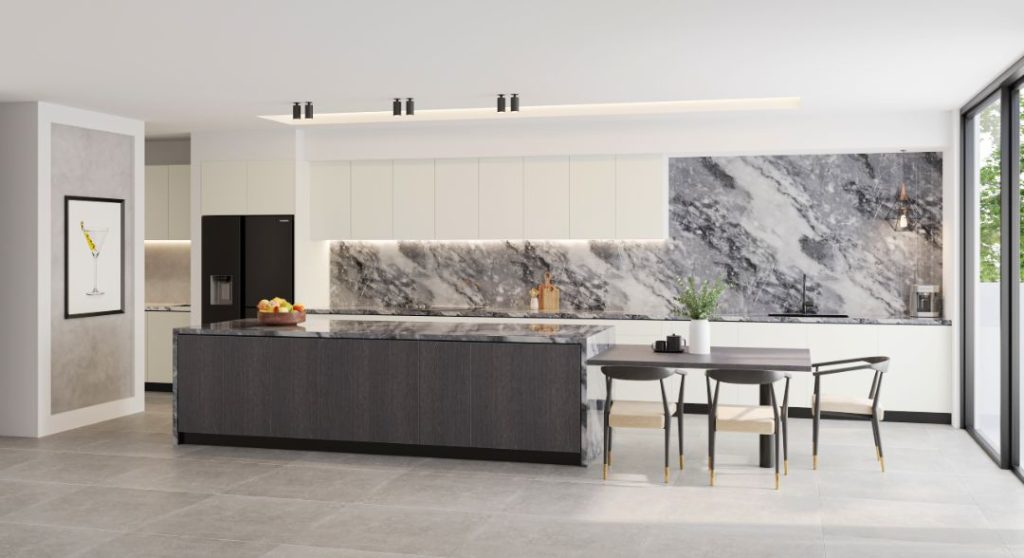The integration of smart-home technology in residential property development is a rising trend, driven by the demand for more efficient, convenient and sustainable living solutions. With homebuyers and investors increasingly looking for automation, energy savings and security features, developers are beginning to recognise the value that smart-home systems can add to their projects. But what exactly are the benefits of incorporating this technology during construction, and what is its impact on return on investment?
We take a look at the evolution of smart homes and what global trends tell us about their future and value in property development.
The Evolution of Smart-Homes
While smart-home concepts have been around since the 70s, rapid advancements in wireless connectivity, smart devices and digital voice assistants have led to a recent boom in their popularity and feasibility. Smart lighting, thermostats, security systems and home appliances can now be controlled and automated through mobile apps and seamlessly connected through smart speakers.
Current smart-home capabilities even include AI-powered facial recognition for home access, predictive maintenance alerts and integration with solar energy systems. With the global Smart Home market size is projected to grow from USD 101.7 billion in 2023 to USD 163.7 billion by 2028, with a compound annual growth rate (CAGR) of 10.0% from 2023 to 2028, it is fast becoming an expected feature rather than a novelty.
Key Benefits for Residents and Developers
For residents, smart technology offers convenience through remote monitoring and management of appliances, lighting, heating and security systems. Homeowners can customise their living environment based on lifestyle needs while still benefiting from energy savings.
For property developers, incorporating smart-home infrastructure and capabilities in new projects provides some key advantages:
- Remote Monitoring and Control: Smart-home systems allow residents to monitor their home’s status and remotely control features even when away. This provides convenience and potentially enhances security through early detection of intrusions.
- Energy Efficiency: Smart thermostats, lighting and appliances optimised based on occupancy patterns and user preferences reduce energy consumption significantly. This translates into lower utility bills and operating costs.
- Safety: Integrated security systems, access control, sensors, and real-time home monitoring capabilities minimise threats and speed up emergency response efforts.
- Customisation: The ability to personalise settings for lighting, climate control, entertainment and other functionalities creates an optimal living environment tailored to residents’ needs.
- Increased Property Value: Smart homes have a strong appeal among technology-focused homebuyers. This demand drives up the potential resale value of properties with built-in smart infrastructure and capabilities.
- Convenience and Comfort: Automation, scheduling, and voice controls in smart homes simplify daily tasks and enhance the overall living experience.
- The metrics support the benefits as well. According to Energy Star, smart thermostats alone can lead to savings of 8-15% on heating bills and 10-12% on cooling bills. Likewise, smart lighting systems can reduce lighting costs by 50-80%.
Real-World Success with Smart-Homes
Global residential developer Lendlease integrated smart-home infrastructure across its East Village residential project in London. The smart-home capabilities added £17,000 ($32,300 AUD) in value to each apartment on average. The American Copper Buildings in New York used cellular-enabled smart home packages to provide their residents 24/7 support, increased rents by 20% and reduced operating costs by 30%.
Closer to home, Mirvac’s LIV Indigo community in Sydney will feature voice-controlled air conditioning, keyless entry and personalised climate zones to reduce energy usage. With such compelling figures, it is not surprising that 81% of surveyed homebuyers expect smart-home infrastructure to be in place when purchasing new properties.
The ROI for Property Developers
For developers focused on building premium residential properties, the ROI from investing in smart infrastructure during construction includes:
- Increased apartment sales prices and projected valuations due to demand for built-in capabilities and the ‘future-proof’ appeal of smart homes.
- Faster sales and reduced marketing costs result from the strong market appetite for smart residential properties compared to conventional constructions.
- Lower building operating and maintenance expenses over time thanks to automated management, predictive upkeep and reduced energy usage.
- Enhanced brand reputation as an innovator in sustainable, technologically advanced construction.
While the upfront costs of installation and integration may be higher, developers stand to realise amplified profits upon sale, reduced lifetime building expenses, and accelerated sales.
Homeowners also enjoy the financial benefits of smart homes in the long run:
- 20-30% lower monthly energy bills, translating into thousands in savings over time
- Increased rental demand and higher rental yields
- 4-5% higher resale value compared to similar non-smart properties
When designed and implemented strategically, smart-home technology is a win-win investment for property developers and homeowners alike.
Challenges and Considerations
Of course, integrating smart-home tech does come with a unique set of challenges. The initial purchase and installation costs are still relatively high. Choosing the right technologies and systems requires careful research since smart home solutions are advancing rapidly. Developers must ensure that structural wiring and hardware support seamless integration and interoperability between different smart devices and ecosystems.
There are also risks associated with the rapid obsolescence of technology or early withdrawal of system support by vendors. But with careful planning and robust infrastructure in place, these challenges can be overcome to harness the immense value smart-home technology can provide.
The Future of Smart-Homes
As technology improves, integrations deepen, and costs reduce, smart homes will likely become a standard expectation rather than a differentiating factor in new residential constructions. Lighting, climate control, security, utilities and entertainment will be managed collectively through intelligent home automation systems.
We may also see the rise of truly intelligent dwellings powered by artificial intelligence, which continuously optimises conditions, predicts problems before they arise and adapts to usage patterns and environmental factors. Smart technology will be pivotal in creating sustainable and conservation-focused residential spaces.
Get Smart with Kirwan Group
The smart-home revolution has well and truly arrived in Australia’s real estate landscape. As a developer focused on innovation and excellence, incorporating smart technology in new residential projects just makes good business sense now and well into the future. With meticulous market research, robust supporting infrastructure and seamless integration with reliable systems, developers can tap into the tremendous value and profitability potential of the smart-home evolution.
If you are looking to integrate smart-home technology into an upcoming residential property development, the team at Kirwan Group can help. Get in touch with us today to learn how we can assist with feasibility assessments, infrastructure planning, vendor selection, system integration and more. With over a decade of experience in developing high-quality, technology-driven residential communities, we have the expertise to guide you through a smooth and successful smart-home implementation. Contact us now to future-proof your next project and deliver maximum value and convenience to your homeowners through intelligent living solutions.

